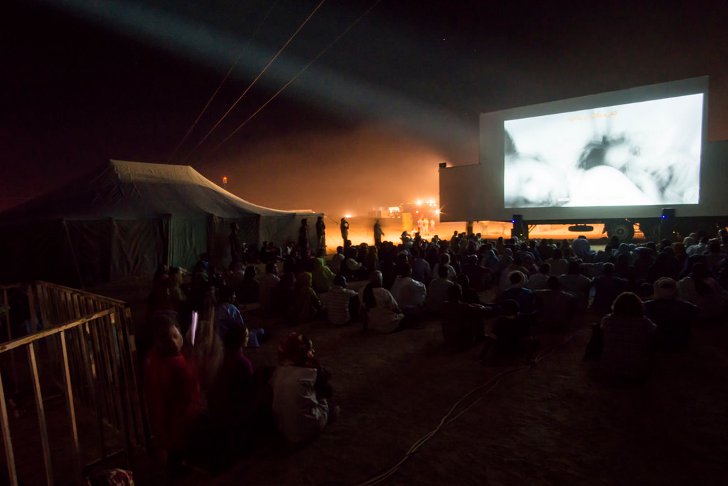Western Sahara is a disputed territory located in the Maghreb region of North Africa. It’s involved in a long-lasting conflict between Morocco, Algeria and the Sahrawi Arab Democratic Republic. During the Western Sahara War that began in 1975, tens of thousands of Sahrawi refugees had to flee from Moroccan forces and settle in the refugee camps set up in the Tindouf province of Algeria. These camps are known for their high-level of self-organization.
In 2003, Spanish civil society and Sahrawis who live in the camps created a human rights film and cultural festival that they named FiSahara. The festival’s main goals are to entertain, empower and educate the Sahrawi people through the media of film as well as to raise international awareness about the conflict in Western Sahara and the plight of the Sahrawi people, who have been exiled from their native lands for more than four decades.
FiSahara’s programming combines film screenings with workshops, concerts, round tables, entertaining activities for children, a traditional Sahrawi cultural fair, camel races, and other events. Sahrawi refugees get a unique chance to meet actors, filmmakers, musicians, human rights advocates and journalists from different countries.
Of course, there are no hotels in the refugee camp, and the nearest city, Tindouf, is located 175 km away from the camp. That’s why most guests live with host families. Visitors often develop strong bonds with their host families, and these experiences lead to production of films about the Western Sahara conflict and other forms of collaboration such as educational, cultural and healthcare projects.
The highest award of the Sahara International Film Festival is the White Camel Award. It is given to the best film chosen by the viewers’ vote. The winners take home a trophy that depicts a white camel, while the refugee family who had hosted the director or actors of the winner film during the festival gets a white female camel.

Photo: FiSahara Film Festival




